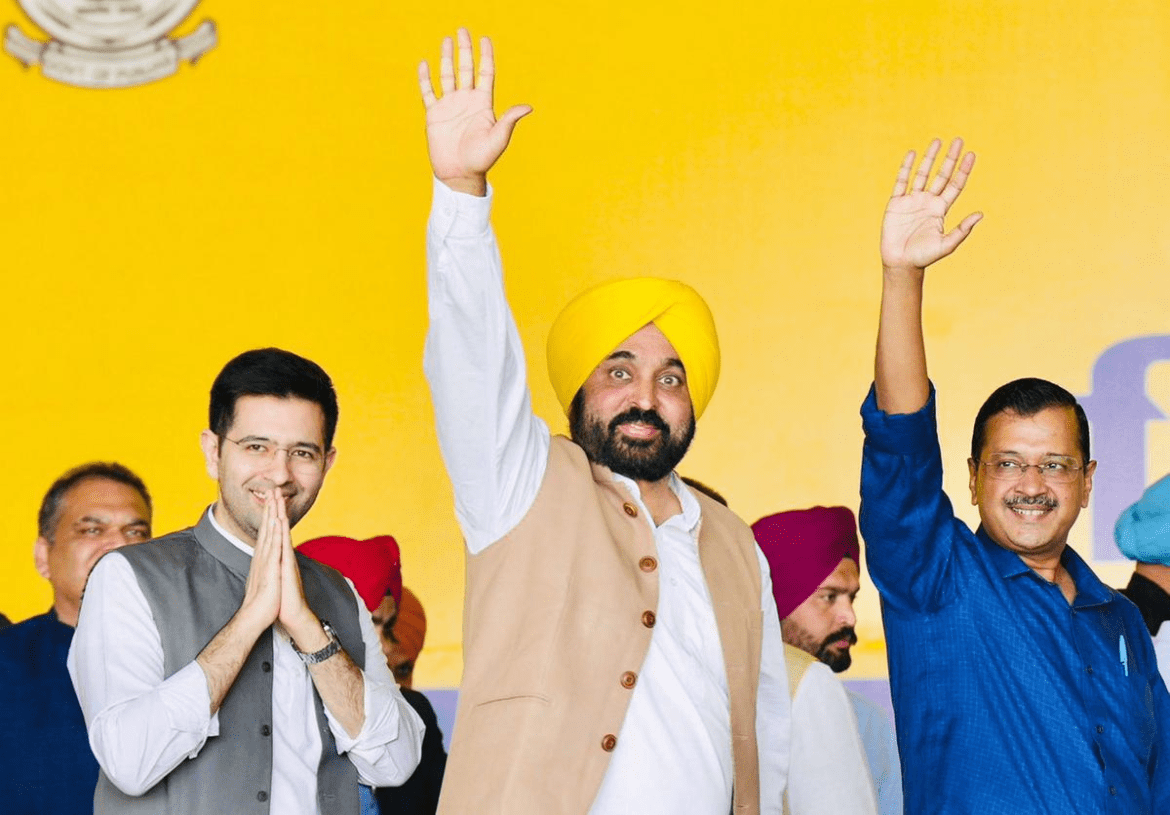AI Generated Summary
- The AAP’s journey in Punjab serves as a reminder that political change is a continuous process, and the real impact lies in the ability to deliver on promises and bring about tangible improvements in people’s lives.
- The second in command, Finance Minister Harpal Cheema, enjoys an important position in the Cabinet, but he has not been designated as the Deputy Chief Minister.
- The party seems to have reneged on its promise to appoint a Dalit as the state’s Deputy Chief Minister.
The Aam Aadmi Party (AAP), known for its anti-corruption stance and promises of clean governance, came to power in Punjab with an unprecedented victory in 2022. Two years into its rule, it’s time to evaluate the impact of its governance on the state’s political landscape, economy, and social fabric.
AAP’s entry into Punjab was like fresh air in a state plagued by corruption scandals and ruled by traditional political dynasties. The party’s promise to bring transparency and accountability resonated with the electorate. In the initial months, AAP initiated several measures to tackle corruption, streamline bureaucracy, and empower local governance at the Mohalla and gram sabha levels.
However, the political journey has not been without its challenges. The state has witnessed some internal rifts within the AAP cadre and allegations of infighting. Additionally, the AAP government has often been at loggerheads with the central government, leading to constant friction and delays in releasing funds and other grants affecting development.
On the economic front, AAP’s performance has been mixed. The party has boosted agricultural productivity by providing subsidies on seeds, fertilizers, and machinery. They have also initiated programs to promote small and medium enterprises (SMEs) and attract investments to the state, but the outcome is far below satisfactory.
However, Punjab’s economy continues to face challenges like the rest of the country’s, such as high unemployment rates, especially among the youth. The promised industrial growth has been slower than anticipated, leading to dissatisfaction among the electorate. However, on the jobs front, Punjab has opened up recruitment to various departments, doing away with ad hoc appointments.
AAP’s focus on social welfare has been commendable. The party has launched several schemes to improve healthcare, education, and infrastructure. AAP has tried to fulfil the promises of free healthcare for all and quality education.
The Aam Aadmi Party’s approach towards Dalits in Punjab has been dismal in social justice and inclusivity.
The Dalit community, historically marginalized and facing systemic discrimination, has been at the receiving end, especially on the issue of fake Dalit certificates used by thousands to get government jobs. Acting most partisanly, the Vigilance Bureau registered cases against the whistleblowers fighting the menace of fake certificates.
The party seems to have reneged on its promise to appoint a Dalit as the state’s Deputy Chief Minister. The second in command, Finance Minister Harpal Cheema, enjoys an important position in the Cabinet, but he has not been designated as the Deputy Chief Minister.
AAP’s vision for Punjab was ambitious, but translating this vision into reality requires more than political will and administrative wisdom. It demands effective governance, stakeholder collaboration, and a robust strategy to address the state’s unique challenges.
The electorate must decide whether AAP’s two years in power have been a step towards a brighter future or if they need to reconsider their choices. The AAP’s journey in Punjab serves as a reminder that political change is a continuous process, and the real impact lies in the ability to deliver on promises and bring about tangible improvements in people’s lives.
The opinions expressed in this article are those of the author. They do not purport to reflect the opinions or views of Khalsa Vox or its members.




